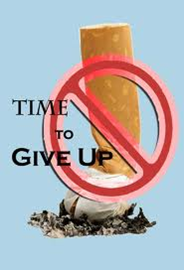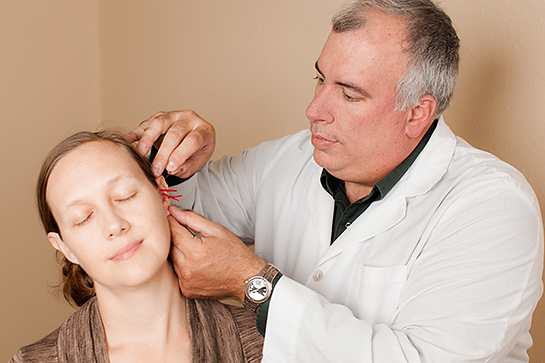In honor of The American Cancer Society’s Great American Smokeout, AOMA is partnering with East Communities YMCAto offer FREE acupuncture for nicotine cessation.
NOVEMBER 21 & 22
9am—5pm
Free, walk-in appointments
Smokeout Location:
East Communities YMCA
in the portable building
5315 Ed Bluestein Blvd
Austin, TX 78723
Despite all the well-researched facts regarding the negative effects of smoking, people continue to smoke cigarettes because of the addictive nature of nicotine. Many smokers try various quitting methods with not much luck, struggling to find a solution that is sustainable, lasting and healthy. Acupuncture has been shown to have great success with treating the full range of addictions and addictive behavior, and has been proven to be especially useful and successful in helping people stop smoking[i].
Acupuncturists are trained to address addictions, especially nicotine addiction, following the principles of Traditional Chinese Medicine. The addiction is analyzed from several perspectives, all of which include the full spectrum of physical, mental, and emotional addiction.
How Acupuncture Treats Smoking Cessation
Acupuncture works to adjust cravings by balancing the body's brain chemistry and also helps heal the physical damage the body undergoes from smoking. There are many recognized protocols to help people stop smoking.
-resized-600.jpg?width=234&height=156&name=clinic_lac_(6)-resized-600.jpg) Auricular acupuncture, or ear acupuncture as it is commonly known, is often used in the treatment of addictions. Protocols for nicotine addiction may use ear points alone or along with other body points [ii] to help balance a person's overall pattern. In this technique, fine needles are inserted into a set of five acupuncture points on the ear, as promoted by The National Acupuncture Detoxification Association (NADA), a not-for-profit organization who teaches and endorses this acupuncture detoxification protocol.
Auricular acupuncture, or ear acupuncture as it is commonly known, is often used in the treatment of addictions. Protocols for nicotine addiction may use ear points alone or along with other body points [ii] to help balance a person's overall pattern. In this technique, fine needles are inserted into a set of five acupuncture points on the ear, as promoted by The National Acupuncture Detoxification Association (NADA), a not-for-profit organization who teaches and endorses this acupuncture detoxification protocol.
For this protocol, the patient may even be sent home with small beads placed on the ear using adhesive tape. When stimulated, these small beads continue to help curb withdrawal symptoms (an application of auricular acupressure). In general, one can expect frequency of visits to be several times per week for the first week or two (recommendations vary per acupuncturist and patient’s condition).
Beating the Addiction Symptoms
The goal of the practitioner in the treatment plan is to support patients through the acute phase of withdrawal, improving their success at kicking the nicotine habit. Commonly, patients experience a decrease in cravings, changes in sensory perception as the taste and smell of cigarettes becomes intolerable, and an increased state of calm and relaxation.
The multiple withdrawal symptoms that one can experience when trying to quit are well-known, including but not limited to insomnia, fatigue, feeling jittery, cough, chest tightness, dry mouth, constipation, irritability, depression, anxiety, and lack of concentration. Acupuncturists routinely address these issues independently, and improvements in such symptoms are commonly experienced as side benefits by patients. In the scientific community, there has been a huge influx of insightful findings on acupuncture’s complex mechanism of action, offering explanation of why this ancient treatment works. Research supports acupuncture’s role in influencing the various aspects of the nervous system, thereby modulating things like your gastrointestinal system, heart rate, stress response, and mood.
In 2011, the Bureau of Justice Assistance (BJA), a subsidiary of the US Department of Justice, in collaboration with the American University, evaluated the effectiveness of acupuncture as an adjunct to substance abuse treatment. This initiative ensued as a result of many drug courts using acupuncture as an adjunct to the substance abuse treatments provided to drug court participants. In the BJA review of the literature, they determined a number of acupuncture studies demonstrated reduced cravings and symptoms of withdrawal when coupled with conventional treatment plans.
Helping You Quit - For good!
Here at AOMA, we take a vested interest in the life quality and health of our patients and community. That means we not only want to help provide affordable and sustainable care for those who are committed to quitting smoking, we also want to offer treatments for those who are simply curious to exactly how effective acupuncture can be in treating addiction!
Not only does AOMA host the Great American Smokeout every year in November, offering free treatments to those in the community wanting to stop smoking, we also have a special herbal remedy specially tailored to smoking cessation. This formula was masterminded by one of our renowned professors and doctors, Jamie Wu, LAc, MD (China), MS, Vice President of Faculty. The formula, called Clear Lung, Calm Shen formula, or Dr. Wu’s Stop Smoking Formula, is a specially formulated herbal remedy made of herbs that specialize in treating addiction, lung health, and the physical, mental, and emotional symptoms of withdrawal. These herbs are powdered and encapsulated in our herbal dispensary (AOMA Herbal Medicine) and then sold through prescription from practitioners in our clinic.
There are multiple other herbal prescription formulas available at AOMA Herbal Medicine that are tailored to treat addictions based on your specific pattern, constitution, and individual needs and preferences. Come see us at the clinic for more information!
If you have never heard of the Great American Smokeout, check out the details below. Don’t miss this special yearly event -- get a start on your New Year’s resolution to give up the cigarettes early!
Free acupuncture for the annual Great American Smokeout!
In honor of The American Cancer Society’s Great American Smokeout AOMA is partnering with East Communities YMCA to offer FREE acupuncture for nicotine cessation.
NOVEMBER 21 & 22
9am—5pm
Free, walk-in appointments
Smokeout Location:
East Communities YMCA
in the portable building
5315 Ed Bluestein Blvd
Austin, TX 78723
For more information, call 512-693-4373
References/Sources:
[i] Starkey, J (LAc). Acupuncture Can Help You Kick the Habit. Retrieved online on November 3, 2013.


